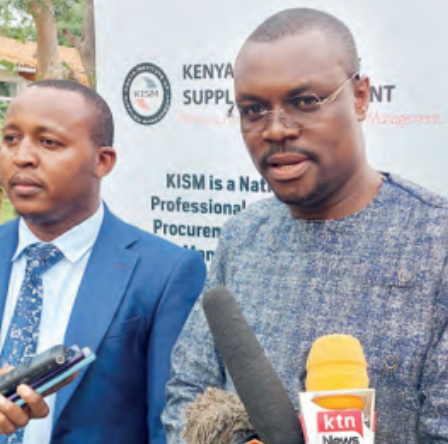The Kenya Institute of Supplies Management (KISM) has initiated a nationwide registration campaign and membership audit to identify and remove unlicensed individuals and impostors from its ranks.
CEO Kenneth Matiba highlighted the issue of numerous workers in supply and procurement roles who are not officially registered. Currently, KISM’s database contains approximately 10,000 registered members, yet there are over 23,000 practitioners nationwide.
Matiba emphasized that alongside the registration process, the initiative aims to cleanse the institute’s register. This effort is aimed at ensuring that only qualified professionals are authorized to engage in supply chain management and procurement activities.
“We are carrying out targeted compliance assessment to clean up membership to include members who are in good standing with the law,” he said.
This, he said, will not only enhance professionalism, but compliance with the law which requires all practitioners to be registered and licensed.
Kism has embraced Recognition of Prior Learning to accommodate those practicing without academic qualifications.
“We are the first professional body in the country to embrace RPL. This is because we realised so many people are practicing and have the experience but lack the qualifications,” Matiba said.
KISM is enhancing the capacity of its disciplinary committee to manage cases of professional misconduct effectively. The institute has formed a partnership with the Judiciary to establish a quasi-judicial committee dedicated to addressing such issues.
Moses Omondi, a council member, underscored that registration with KISM is a legal requirement and encouraged practitioners nationwide to participate in the registration drive.
To bolster compliance, KISM has implemented legal measures aimed at ensuring adherence to professional standards and removing unqualified members from its register.
KISM serves as the national authority for professionals engaged in procurement and supply chain management in Kenya. It operates under the Supplies Practitioners Management Act, 2007, which mandates it to register, license, and regulate practitioners in this field.



